Against the backdrop of an ongoing trade war and after numerous sanctions against major Chinese company Huawei, the US Department of Commerce has finally announced that it will allow American companies to cooperate with Huawei.
Why, after such a long anti-Chinese campaign, did the US suddenly decide to cooperate with Huawei? And in the meantime, what is actually happening to the American 5G market?
Continuation of the story with Huawei
The formal reason for the ban on cooperation with Huawei last year was a claim that the company was connected to the Chinese government, and that the issue was therefore a matter of national security reasons.
Now, that decision has been reversed. There is only one limitation – joint development should only come around 5G networks, which are expected to seriously change the global technology market. If the company is so dangerous, how could the government take such a risk? Their explanation is a bit fuzzy:
“The rule returns US industry to the status quo ante, from an Entity List perspective, with respect to disclosures of such technology to Huawei and its affiliates in legitimate standards development contexts only, and not for commercial purposes. Disclosures for commercial purposes remain ‘subject to the EAR’ and are still subject to recordkeeping and all other applicable EAR requirements”.
The Office said that, as part of these decisions, it will amend the new charter introduced last May to prohibit US companies from doing business with Huawei and several other Chinese companies.
“The United States will not cede leadership in global innovation. This action recognizes the importance of harnessing American ingenuity to advance and protect our economic and national security,” said US Department of Commerce Secretary Wilbur Ross in a statement.
“The department is committed to protecting US national security and foreign policy interests by encouraging US industry to fully engage and advocate for US technologies to become international standards.”
Ross added that last year’s ban on Huawei “does not prevent American companies from contributing to important standards-developing activities”
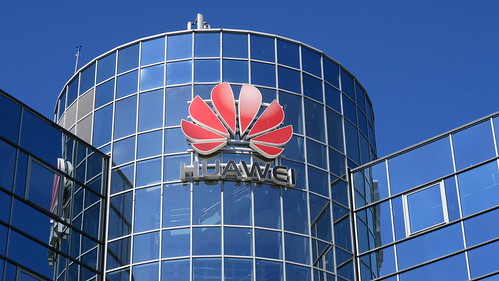
The emperor has no clothes
When the US got involved in the war with Huawei, it seemed a sensible enough step if we believe what the US was saying about it Chinese rival. But was any of it actually true?
Recently, the Pentagon announced that it is starting to create its own prototype 5G network at a military base – the Nellis Air Force Base. The Defense Department plans to put the system into operation by January 2021. While the world’s leading companies are on the verge of selling 5G tech on the mass market, the US is still working on prototypes.
The demand is already extremely high – and most of all in the US. The day before, Ericsson adjusted its estimate of the number of 5G users worldwide by the end of 2020 from 13 million to 190 million in its latest edition of the Ericsson Mobility Report. The company expects the following figures for demand for new technologies by 2025:
– 74% of services in North America
– 60% in North-East Asia
– 55% in Western Europe
– 27% in Central and Eastern Europe
– 21% in Southeast Asia and Oceania
– 18% in India
– 13% in Latin America
– 9% in North Africa
– 3% in Sub-Saharan Africa
Not having its own technology, the US nevertheless attempted to keep the market by restrictive measures: first, by trying to prohibit US companies from cooperating with Chinese companies, then by introducing a rule requiring global companies producing computer chips to obtain a license from the US … Of these creative measures, perhaps the 5G “Clean Path” initiative was the most extreme, requiring that all digital data entering or leaving US diplomatic missions around the world should be transmitted only to “trusted” companies.
As if these measures were not enough, the US began to put serious pressure on its international partners to boycott the technology. The US called on all its partner countries and companies to follow similar protocols to the “clean path” 5G initiative. These partners include the Czech Republic, Norway, Poland, Sweden, Estonia, Romania, Denmark, Latvia and Greece, as well as major operators Orange in France, Reliance in India, Telstra in Australia, SK and KT in South Korea and the Big Three in Canada.
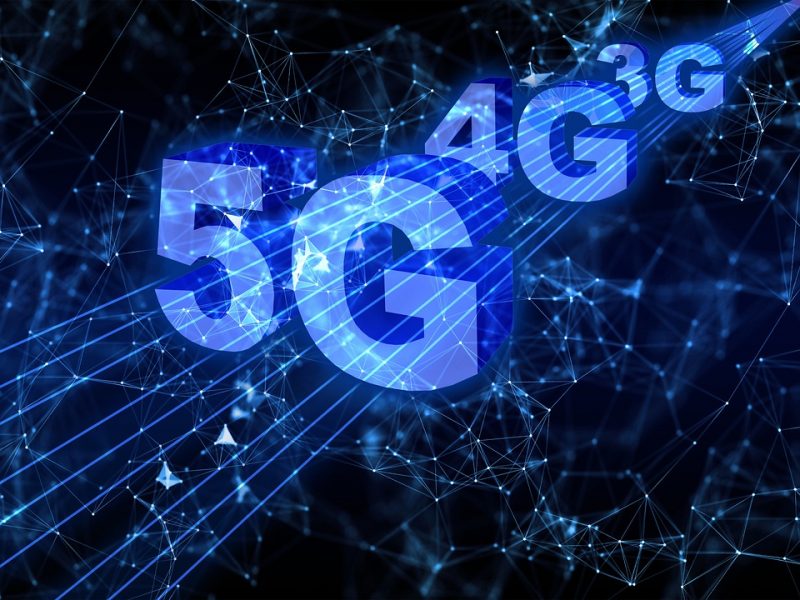
Europe ahead of the USA: Ericsson and Nokia
In this process, there is one important question that Washington has not yet answered: why does the United States lack its own competitive equipment? Where is the technology itself, and how does it expect to move forward using nothing but political pressure and prohibitive measures?
There are companies in the US that are trying to keep up with the trend. However, globally, only two companies are currently competing with Huawei to build the most important 5G network infrastructure, and both are European: Swedish Ericsson and Finnish Nokia. These companies produce the most important equipment necessary for 5G work – RAN.
Washington understands that. And in order to somehow hit Huawei without having its own goods, the US is now urging its “partners” to ignore Chinese goods and buy Ericsson/ Nokia.
Ericsson supplies equipment for all three major US carriers: AT&T Inc., Verizon Communications Inc. and T-Mobile US Inc. That is, the US, without creating its own product, is trying to agree on cooperation with Europeans.
At the same time, it should be noted that Ericsson did not lose any time. Instead of a political anti-Chinese agenda, the Swedish company has strengthened itself in the Chinese market by concluding contracts with 3 operators (China Telecom, China Unicom, China Mobile). Of course, Chinese leaders Huawei and ZTE got the majority of contacts in China – about 85% of 5G deals, and Ericsson – about 10% – still, these are impressive figures. At the same time, we can assume that Ericsson has been working with Chinese manufacturers and gaining experience.
If the US is serious about developing competition in an important industry, then they have to reckon with an inconvenient fact: they really had a chance to lead the 5G, and they lost it.
Why did the US lose the race
Huawei’s blacklisting raised questions about the ability of American companies to develop 5G technologies. American legislators dug their own grave, and now they must lie in it.
According to Politico, the roots of technological failure in 5G are rooted in the 1990s. For example, laws aimed at promoting competition, primarily the 1996 Telecommunications Act, removed market consolidation tests. This has led to a series of mergers and reductions in real competition.
The 2001 telecommunications collapse dealt a serious blow to the industry, destroying many promising companies. Then, without taking the initiative to set standards and establish effective public-private partnerships, Washington itself helped to undermine the technology market.
The latest decisions under Trump are also not conducive to 5G competition: for example, the Trump administration’s latest budget proposal reduces spending on science, while China increases long-term investment in basic research and focuses on growing talent through education and recruitment. The famous “brain drain” is very clearly changing direction eastwards.
The latest decision to resume cooperation with Huawei was most welcomed by the Information Technology Industry Council, ITI. They admitted that the situation when they were forced to give up their place in this job to companies like Huawei and her like, was in no one’s interest but that of China itself. Naomi Wilson of the Information Technology Industry Council, which represents tech companies, said the rule was a “long-awaited step to clarify that US companies can participate in international standard bodies – even where certain listed entities are present.
Given that the economies of all countries, including the US, were affected by the Covid-19, the introduction of new technologies in demand could be the best way out of the crisis, especially given the on-going large scale protests in the US.
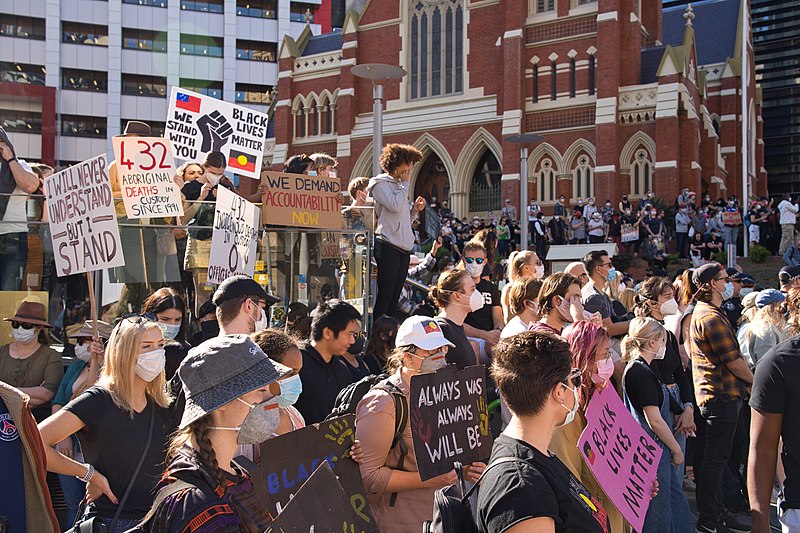
What can the US do?
The US is trying to pretend that it still plays an important role on a global scale and uses the old levers of soft power, pressuring pro-American leaders. In the end, the task is to parasitize other people’s innovations.
To counteract Chinese projects, the US uses the Development Finance Corporation (DFC), which is designed to provide financial assistance to projects outside the domestic market and act as a bridge through which privileged companies can gain a foothold in new markets.
The DFC has already made financial contributions to projects around the world, including Connect Africa and Fostering a Free and Open Indo-Pacific.
The US government’s investment guarantees a $60 billion increase under the DFC, and the rules have been changed to allow the DFC to support non-US companies’ investments as well.
This tool (and other political levers) is being used by the US to force “partners” to block potential cooperation with China.
For example, in Africa, the Sino-American battle is reminiscent of the Cold War with the USSR. The Conversation notes that at that time, Africa was essentially a pawn in a big geopolitical game, and unable to focus on its own economic development.
In the current climate of growing tension between the US and China, African countries may find themselves in a situation where they will repeat the same mistakes if they do not seize their own destiny, the publication argues. In the current geopolitical climate, the African continent faces three challenges and opportunities: technological boundaries, global supply chains and trade integration and economic cooperation.
Thus, access to and use of new technologies such as 5G are vital to Africa’s development. Access to technologies such as 5G could provide access to universal broadband, which is essential to move the continent towards a digital economy.
South Africa is one of the main candidates for the introduction of 5G, and a place where the confrontation between Beijing and Washington is particularly fierce. The country has four largest telecommunications operators – Telkom, Vodacom, MTN and Cell C. The US government tried to pressure the authorities to warn South Africa that it was risking the security of its most sensitive information and data by using the 5G telecommunication infrastructure of China’s telecommunications giant Huawei.
After news of measures against Huawei, South African cameramen wrote a joint letter to President Cyril Ramaphosa asking him to urgently intervene in US actions.
Ramaphosa, being a globalist but still pragmatic, sided with the operators and called the USA envious.
“We cannot afford to have our own economy be held back because there is this fight that the US is having and born out of their own jealousies,” he told a Fourth Industrial Revolution (4IR) conference in Midrand in July 2019.
As if to confirm cooperation, China and Africa held a videoconference with Xi Jinping at the highest level (the Extraordinary China-Africa Summit on Solidarity against COVID-19). China will explore greater cooperation with Africa in new business forms such as the digital economy, smart city, clean energy and 5G to accelerate Africa’s development and regeneration, Xi Jinping said.
In other words, in Africa, the United States has suffered yet another historic defeat.
Other countries that support the United States, however, have already curtsied in favor of Washington. One predictable example is Israel, the main ally of the Trump administration. US Defense Secretary Mark Esper met with his Israeli counterpart, then Defense Secretary Naftali Bennett, in Washington in February. According to some reports, the question of 5G was one of the issues raised during the discussions. On May 13, Secretary of State Mike Pompeo visited Israel where he met with Prime Minister Benjamin Netanyahu and his political partner Beni Ganz, who is currently Minister of Defence. At the meeting he also issued warnings to Americans about China’s participation in infrastructure construction in Israel. In fact, after this visit, Hong Kong’s Hutchison was left out of the race to build Israel’s largest plant, Sorek 2. On May 26, US Ambassador David Freedman met with Hendel, the newly appointed Secretary of State for Communications, to discuss a 5G tender.
It seems the US’ efforts have borne fruit in Israel… but China is not giving up. The Israeli Foreign Investment Inspection Committee is expected to consider Hutchison’s request to buy shares in the Israeli telecommunications company Partner, which will allow the Hong Kong company to regain control of the business.
Canada, under pressure from the US, abandoned Huawei, which it had previously planned to engage in the project to implement 5G tech. Now this task will be performed by the Swedish company Ericsson and Finnish Nokia. Moreover, in the case of Canada, it has a purely political connotation that shows loyalty to the States: the Supreme Court of the Canadian province of British Columbia heard the case of Huawei Meng Wangzhou, CEO of the company. The Court supported the extradition of a Chinese national to the United States.
Latin America, despite the decline in investment due to the Coronavirus pandemic, is hungry for new technology. This year 5G networks are to be commissioned in Argentina, Brazil, Chile, Colombia and Mexico.
Perhaps the most vivid fight of the US against China took place in Brazil. US ambassador for Brazil Todd Chapman confirmed talks between the two countries on financing 5G on condition that Huawei would be excluded from the networks. The second condition is that the money will only be used to purchase equipment from Ericsson or Nokia, he told Brazilian newspaper Folha de S.Paulo.
Nevertheless, China has already established itself in Brazil and laid the groundwork.
The Chinese company has successfully conducted 5G tests with all four major carriers – Telefonica Brasil SA, TIM Participacoes SA, America Movil’s Claro and Oi SA – and is helping them modernize their infrastructure ahead of a long-awaited 5G spectrum auction.
Last August, Huawei said it would allocate $800 million to build a smartphone factory in Sao Paulo. The plant will not only employ 1,000 people, but will also act as a catalyst for knock-on economic development and the creation of local supply chains.
If the Brazilian government chooses cash for the US at the expense of Huawei’s role in the 5G deployment, it may regret its choice in the future.
The Future of 5G and 6G
5G will go a long way towards what some call the new Industrial Revolution: the Internet of things, fast communications, simplification of international communication, security systems, etc.
Huawei has the largest number of patents required for 5G global standards. As Beijing rushes ahead of the US in international research, the telecommunications giant and other Chinese groups have taken the lead in writing and developing standards for advanced technology.
And while the US is trying to prohibit its “friends” from cooperating with China, Chinese company Xiaomi has already started testing 6G network.
What happened to the US is a signal of helplessness and the collapse of the globalist unipolar agenda. Washington has managed to parasitize on other people’s resources and inventions for decades, became an experienced organizer of color revolutions and professionals in applying soft power while exporting liberal values and wild capitalism. However, the destructive agenda turned out to be a pitfall for the US itself – while they were dealing with other countries, they missed a moment inside their own state. This led to the failure of the 5G, mass protests and social cataclysm.
The world is changing – a new world order is coming to replace the current one. What this new order will look like is still an open question. At best, it will be a multipolar world with mutually beneficial cooperation, at worst, China will replace American as the new global hegemon.
The US needs to make sure it doesn’t go digging any new holes that might end up as graves.
5G has promising applications in education, health and agriculture, among many other areas. It can revolutionize the world the way electricity once did. It is in the interests of America and Americans to cooperate with more advanced countries.


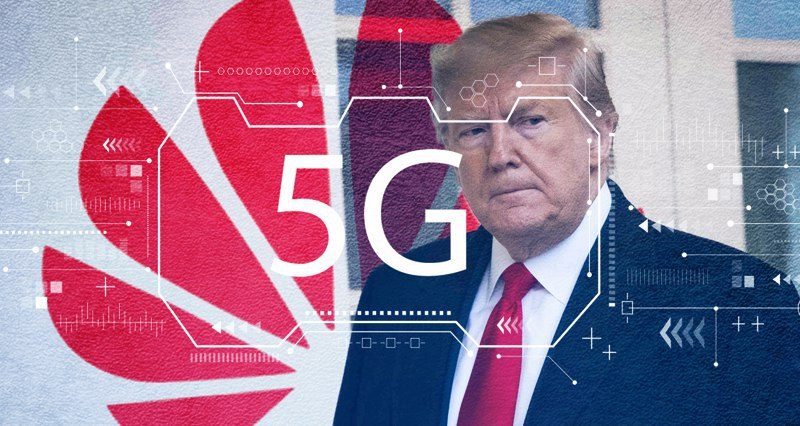





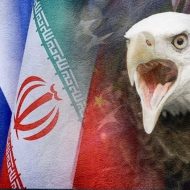
Leave a Reply